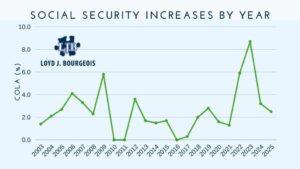If you have filed a claim for Social Security disability benefits, you may be asked to undergo a consultative medical or psychological examination. Here is a brief explanation of the process for informational purposes. SSA will arrange a consultative examination. It may be either physical or mental. When you file for disability benefits the SSA will contact your medical providers and hospitals and request copies of your medical records. Depending on what medical evidence SSA gathers from your providers, SSA may need additional information to make its decision.

The purpose of the consultative exam is to gather medical evidence about your condition.
If one of the following circumstances is involved in your case, you may be asked to undergo a consultative examination:
- You have not been treated by a doctor at all or for the condition that is causing your impairment.
- Your medical records from your treating doctor are too old, illegible, or don’t contain the information or specific test results that the SSA needs to determine whether you are disabled.
- Your doctor is not a specialist in the area in which you are having problems and the Social Security Administration needs an expert opinion.
- Your medical records contain conflicting information.
- Your doctor has failed to send your medical records to the Social Security Administration.
If your case is still in the early stages, at the pre-hearing level, the examination will be arranged by the disability examiner who is handling your claim. If your case has reached the hearing level the administrative law judge will be the one to determine if an examination is necessary. In either case, the consulting doctor’s medical report becomes a part of the evidence in your file.
Depending on what type of impairment you have, you may or may not need to undergo a complete physical examination. You may only have to take a few diagnostic tests such as a breathing test or stress test or just have to do blood tests if something less than a complete examination is required. If a complete examination is required, the doctor will probably take your medical history, give you a physical, and administer laboratory and other diagnostic tests. If your impairment is a mental one, you will probably have to take various tests administered by a psychiatrist or psychologist.
SSA pays for all consultative exams and reports. And, if you live more than a certain number of miles from the examination site, SSA will pay for transportation.


We GET IT DONE
Clients trust us to handle their case properly and effectively
FREE Confidential Case Review (985) 240-9773You must show up for the examination or your credibility can be called into question. Failing to show up for the exam makes you appear “uncooperative” and like you are hiding something. If you have good cause for not attending the exam, it can be rescheduled. However, if you do not have good cause, the SSA will make a decision based only on the medical evidence in your file. If that evidence is inadequate (and it probably is) then your claim will be denied.
SSA regulations give preference to your medical providers to perform the exam, but practically, SSA often does not contact your doctor or request they perform the exam.


We DO THE RIGHT THING
The correct choice – always – is to do the right thing.
FREE Confidential Case Review (985) 240-9773As a Social Security disability lawyer, I have advised many clients nationwide on what to expect and traps to look out for at these consultative examinations. If you or someone you love is fighting for Social Security disability benefits, give us a call at 985-240-9773. We have the experience to guide you through this difficult process and help you understand what may happen at your consultative exam.















